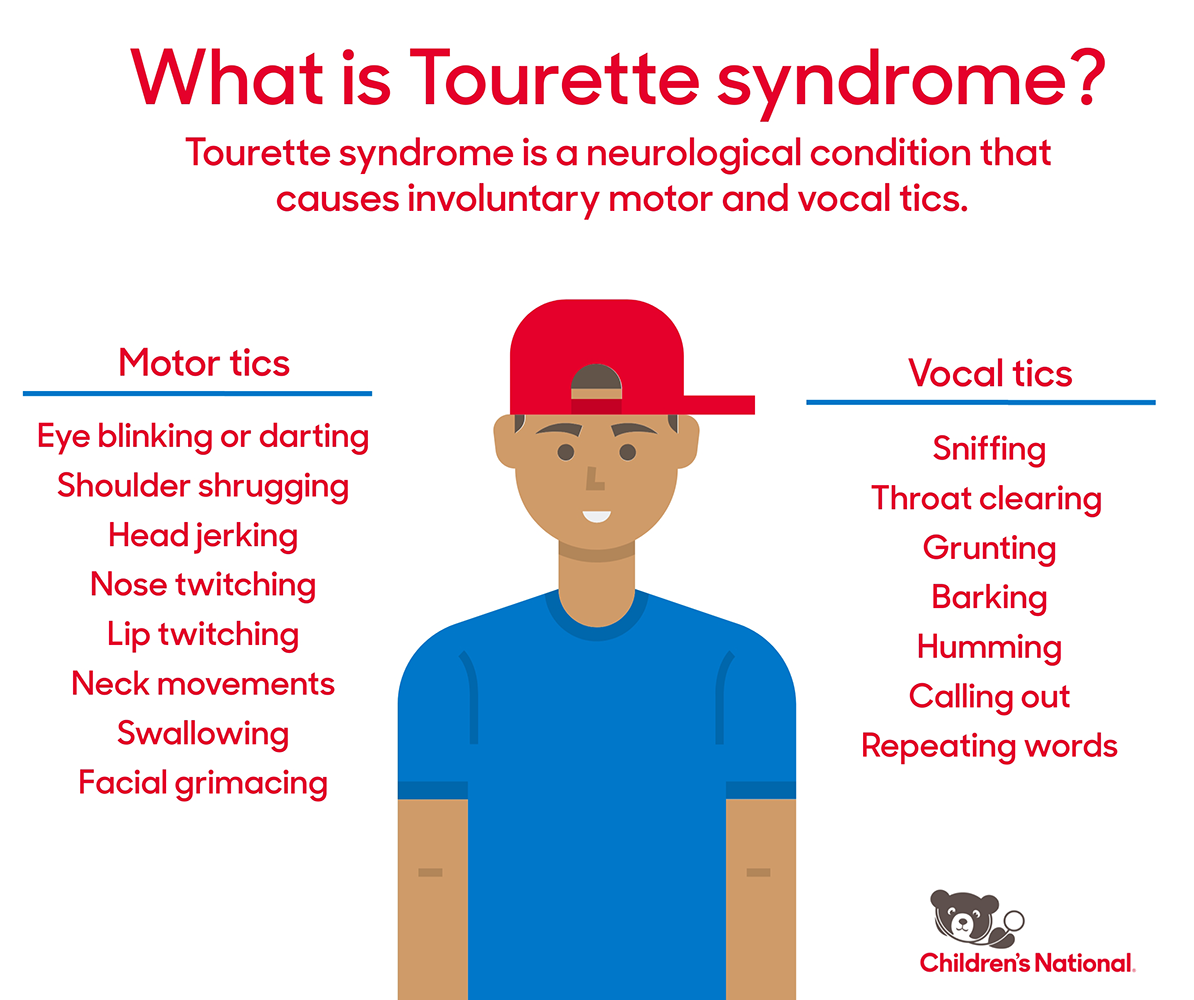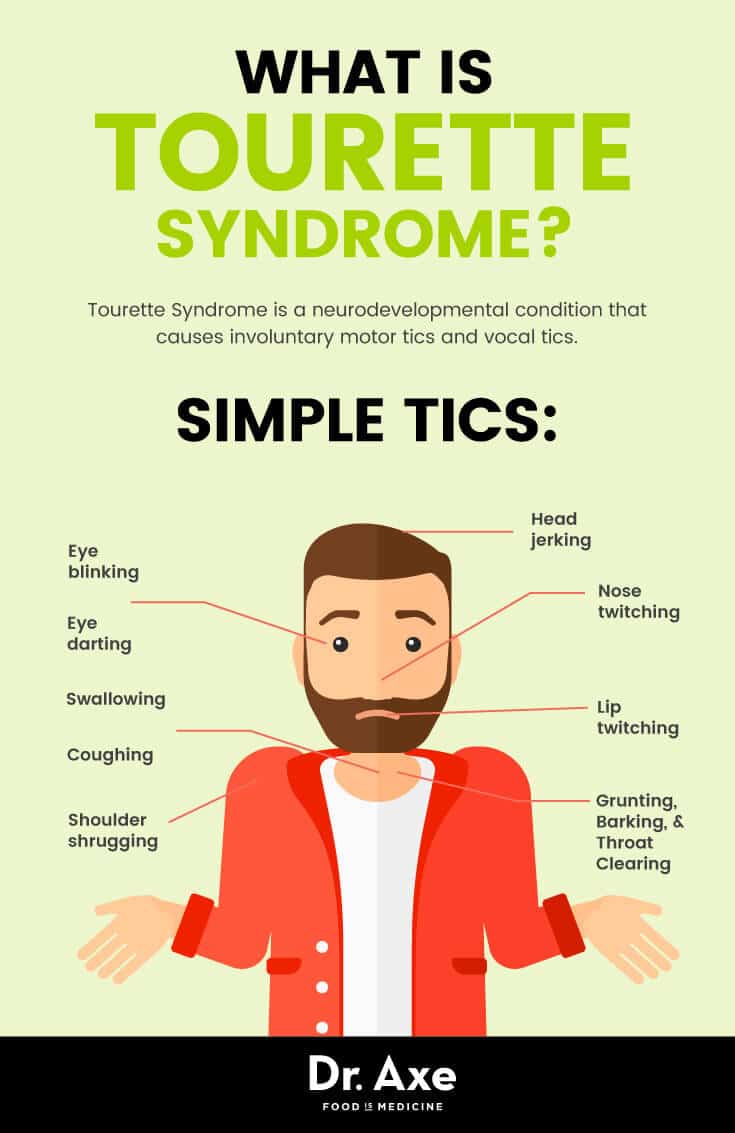Understanding Tourettes: A Closer Look At Tics And Living Well
Detail Author:
- Name : Mr. Stewart Schmitt
- Username : ebarton
- Email : mitchell.brendan@waters.com
- Birthdate : 1970-08-10
- Address : 6936 Watsica Forges West Drake, NE 64515-9718
- Phone : (201) 498-8371
- Company : Dicki, Aufderhar and Spinka
- Job : Hydrologist
- Bio : Itaque odit eveniet illum expedita quidem doloremque quis. Odit sunt voluptatem et culpa. Aut explicabo inventore sequi tenetur.
Socials
linkedin:
- url : https://linkedin.com/in/davin.kozey
- username : davin.kozey
- bio : Aperiam eum minus et quis ea et minima minus.
- followers : 6768
- following : 403
tiktok:
- url : https://tiktok.com/@kozeyd
- username : kozeyd
- bio : Illum inventore quia aliquam sint. Aut accusantium in minima ut dolorem.
- followers : 379
- following : 685
facebook:
- url : https://facebook.com/davin_official
- username : davin_official
- bio : Laborum perspiciatis quos cumque dolores omnis est.
- followers : 3704
- following : 332
Learning about a condition like Tourette syndrome, or Tourette's, can be a really important step for many people, you know, whether it's for yourself, a family member, or perhaps someone you care about. This condition, which is actually a common neurodevelopmental disorder, often begins when someone is a child or a teenager. It's something that affects the brain and nerves, and it brings about some rather noticeable characteristics, particularly with movements and sounds that are not always easy to control.
What exactly does that mean for someone living with it? Well, it essentially involves what we call "tics." These are sudden, unwanted, and often repeated movements or vocal sounds. For instance, you might see someone repeatedly blink, or perhaps make a little throat-clearing sound. These actions are involuntary, meaning the person experiencing them can't just stop them on command, which is a key part of understanding this condition, you know, it's not a choice.
So, this article is here to help shed some light on Tourette's. We'll explore what it is, what those tics are like, and how people can live full and meaningful lives with the condition. It's really about building a better picture, and maybe even a bit of empathy, for what Tourette's involves, so we can all be a little more informed, at the end of the day.
Table of Contents
- What is Tourette Syndrome?
- Living with Tourette's: Everyday Life
- The Neurological Side of Tourette's
- Common Questions About Tourette's
- Moving Forward with Awareness
What is Tourette Syndrome?
Tourette syndrome, often just called Tourette's, is a neurological condition, that, is that, affects the nervous system. It's actually classified as a neurodevelopmental disorder, which means it involves how the brain develops and functions. This particular condition is characterized by a person making sudden movements or sounds that they just can't control, and these are known as tics, basically.
It's important to remember that Tourette's is a chronic condition, meaning it's long-lasting. While it often starts in childhood, and for many, it might even improve as they get older, it's something that stays with a person, in some respects. The way it shows up can be different for everyone, too, with tics that range from being very mild to quite severe, you know, depending on the individual.
Understanding Tics: The Core of Tourette's
The main feature of Tourette syndrome is the presence of tics. These are involuntary, repetitive, and sudden movements or vocal sounds. To give you an idea, a person with Tourette's will have multiple movement, or motor, tics, and at least one vocal tic. A motor tic might be something like repeatedly blinking, shrugging shoulders, or even head jerking, apparently.
Vocal tics, on the other hand, involve sounds. This could be anything from throat clearing, sniffing, or making little noises. Sometimes, these vocal tics can be words or phrases, though that's actually less common than what people might think. It's really important to grasp that these tics are not done on purpose; they are something the brain just makes happen, you know, without conscious thought.
The feeling before a tic can be described as an urge, a bit like needing to sneeze or itch. This feeling builds up until the tic happens, and then there's often a temporary sense of relief. It's a complex experience, and it's something people with Tourette's learn to live with and manage, in their own way, so.
When Does It Typically Show Up?
Tourette syndrome most often begins in early childhood or during adolescence. It's usually diagnosed in children, as that's when the tics first become noticeable. As a matter of fact, for many people, the tics tend to be most prominent during the pre-teen and early teen years. It's a time of a lot of changes anyway, and adding tics can make it even more challenging.
Interestingly, while it starts early, the condition often improves in adulthood. For some, tics might lessen in frequency or intensity, and for others, they might even disappear completely. However, for many, Tourette's remains a part of their life, just with varying degrees of impact. This variability is a key characteristic of the condition, you know, it's not a one-size-fits-all experience.
Living with Tourette's: Everyday Life
Living with Tourette's can present a unique set of challenges, but it's also important to remember that many people with the condition lead very full and successful lives. The impact of tics can vary greatly; some people have very mild tics that don't interfere much, while others experience more severe tics that can affect daily activities, obviously. Things like school, work, and social interactions can sometimes be a bit trickier, but with the right support, people really do thrive.
One of the biggest hurdles can be misunderstanding from others. Because tics are involuntary, people might mistakenly think someone is being rude, or perhaps trying to get attention. This is why awareness and education are so incredibly vital. When people understand that tics are not a choice, it changes everything, you know, for the better, as a matter of fact.
Support and Community
Finding a good support system is genuinely helpful for anyone living with Tourette's. This might include family, friends, teachers, or even support groups. Connecting with others who understand what it's like to live with tics can be incredibly validating and empowering. Sharing experiences and strategies can offer comfort and practical advice, and stuff.
There are also organizations dedicated to providing resources and fostering a sense of community for people with Tourette's and their families. These groups often work to raise public awareness and advocate for better understanding and acceptance. It's really about creating a space where people feel seen and supported, which is very important, to be honest.
Managing Tics and Finding Relief
While "My text" tells us there is no cure for Tourette syndrome, there are various ways to manage the condition and find relief from tics. Medications can be one option, and they work by helping to reduce the frequency or intensity of tics for some individuals. It's not a magic bullet, but it can make a noticeable difference for many, you know.
Beyond medication, other approaches can be very beneficial. Behavioral therapies, for instance, can teach people techniques to manage their tics or reduce the urge to tic. Learning to identify the premonitory urge, that feeling before a tic, can help some people use strategies to either suppress the tic or redirect it in a less noticeable way. It's a skill that takes practice, but it can be quite effective, basically.
Lifestyle adjustments can also play a role. Things like managing stress, getting enough sleep, and engaging in activities that bring joy and focus can sometimes help reduce tic severity. Every person's experience is unique, so finding what works best often involves a bit of trial and error, and working closely with healthcare professionals, obviously. You can find more general information about Tourette's here.
The Neurological Side of Tourette's
As "My text" points out, Tourette syndrome is a neurological disorder, meaning it's rooted in the nervous system. This is why it affects the brain and nerves, causing those involuntary movements and sounds. The exact causes are still being researched, but it's understood to involve a combination of genetic and environmental factors, so it's not just one thing, you know.
Scientists believe that differences in certain brain chemicals, called neurotransmitters, play a part. These chemicals help brain cells communicate, and when they're not quite balanced, it can affect how signals are sent, leading to tics. It's a very complex system, and understanding it better is key to developing even more effective treatments down the line, in a way.
It's also worth noting that Tourette's can sometimes come with other conditions, like ADHD (Attention-Deficit/Hyperactivity Disorder) or OCD (Obsessive-Compulsive Disorder). These co-occurring conditions are quite common and can also impact a person's daily life, meaning support often needs to address these alongside the tics themselves, too. It's a whole picture, really, that needs to be considered.
Common Questions About Tourette's
People often have a lot of questions about Tourette syndrome, which is totally understandable. Here are a few common ones that come up, just to clear things up a bit, as a matter of fact.
Is Tourette's a mental illness?
No, Tourette syndrome is not a mental illness. It is actually a neurological disorder, meaning it's a condition that affects the brain and nervous system. While people with Tourette's might experience related mental health challenges due to the impact of their tics or co-occurring conditions, the Tourette's itself is about brain function, you know, not a psychological disorder, per se.
Can people with Tourette's control their tics?
Generally speaking, no, people with Tourette's cannot fully control their tics. Tics are involuntary movements or sounds. While some individuals might be able to suppress their tics for a short period, it often takes a lot of effort and can be very uncomfortable, kind of like holding back a sneeze. Eventually, the tic usually has to come out, which is why it's so important to understand they are not doing it on purpose, obviously.
Does Tourette's always involve swearing?
This is a common misconception, but no, Tourette's does not always involve swearing. The vocal tic that involves involuntary uttering of obscene words, called coprolalia, affects only a small percentage of people with Tourette's, actually. Most vocal tics are much simpler sounds, like throat clearing, sniffing, or grunting, you know, not what you typically see in movies, for instance.
Moving Forward with Awareness
As we move through late 2023 and into 2024, there's a growing conversation around neurodiversity, and that's a good thing for conditions like Tourette's. More and more, people are recognizing that brains work in many different ways, and that's something to be celebrated, you know, not hidden. Understanding Tourette's is a big part of this broader acceptance.
The information in "My text" really helps us see that Tourette syndrome is a complex, neurological condition with varying presentations. It causes involuntary movements and vocal sounds called tics, which can range from mild to severe. While there's no cure, management strategies and support can make a huge difference in a person's life, as a matter of fact. It's about empowering individuals to live their best lives, despite the challenges that might come their way.
We encourage you to keep learning more about Tourette's and share this information with others. The more we understand, the more supportive and inclusive our communities become. You can learn more about Tourette's on our site, and for additional resources, feel free to explore this page. It really helps to spread the word, basically, and create a more accepting world for everyone.

What is Tourette syndrome? - Children's National

Tourette Syndrome Symptoms + 9 Natural Treatments - Dr. Axe

Guide to explain Tourette's syndrome to children : coolguides